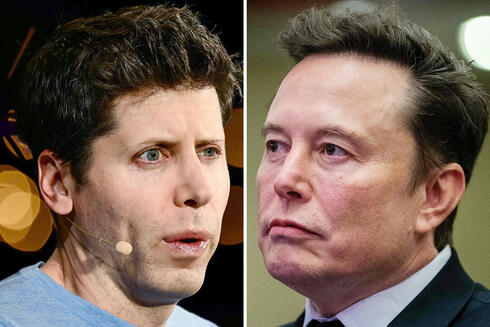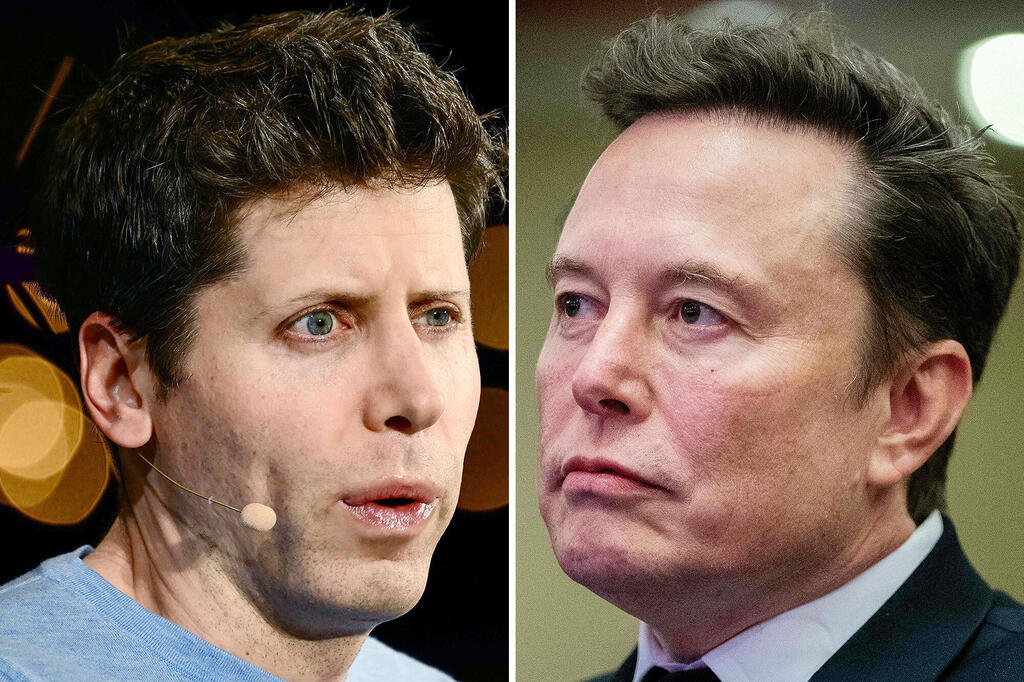
Elon Musk’s $97.4 billion OpenAI bid: A fight for AI’s future or a grudge match with Altman?
With a massive billion bid for OpenAI, Musk challenges Altman’s leadership and the future of AI—fueling a high-stakes battle over control, vision, and profit.
A consortium led by Elon Musk announced on Monday that it has offered $97.4 billion to buy the nonprofit that controls OpenAI, marking another move in the billionaire's effort to block the artificial intelligence startup from transitioning to a for-profit entity.
Musk's bid is likely to escalate longstanding tensions with OpenAI CEO Sam Altman over the future of the ChatGPT maker, which is at the center of the boom in generative AI technology. In response, Altman posted on X on Monday: "no thank you but we will buy twitter for $9.74 billion if you want."
1 View gallery


Elon Musk (right) and Sam Altman.
(Photo: Patrick T. Fallon and Allison ROBBERT / various sources / AFP)
Musk co-founded OpenAI with Altman in 2015 as a nonprofit but left before the company gained momentum. In 2023, he launched a competing AI startup, xAI.
Musk, the CEO of Tesla and owner of tech and social media company X, is a close ally of former President Donald Trump. He reportedly spent more than a quarter of a billion dollars to support Trump's election campaign and currently leads the Department of Government Efficiency, a new White House division focused on drastically reducing the federal bureaucracy. Musk recently criticized a $500 billion OpenAI-led project that Trump announced at the White House.
OpenAI is now attempting to transition from a nonprofit to a for-profit entity, arguing that the move is necessary to secure the capital needed to develop cutting-edge AI models.
Musk sued Altman and other OpenAI executives in August last year, alleging they violated contractual agreements by prioritizing profit over the public good in their push to advance AI. In November, he petitioned a U.S. district judge for a preliminary injunction to block OpenAI from converting to a for-profit structure.
Musk's lawsuit claims that OpenAI's founders originally approached him to fund a nonprofit dedicated to developing AI for the benefit of humanity but have since shifted their focus to financial gain.
"It's time for OpenAI to return to the open-source, safety-focused force for good it once was," Musk said in a statement on Monday. "We will make sure that happens."
In a message to employees, Altman reportedly said the company's board intends to make clear that it has no interest in Musk's "supposed bid," according to a report by The Information on Monday. On Tuesday, he told Axios that OpenAI was not for sale.
Musk and OpenAI investor Microsoft did not immediately respond to requests for comment.
The consortium led by Musk includes his AI startup xAI, Baron Capital Group, Emanuel Capital, and others.
xAI could merge with OpenAI following a deal, according to The Wall Street Journal, which first reported Musk's offer earlier on Monday. xAI recently raised $6 billion from investors at a valuation of $40 billion, sources told Reuters.
"This bid is definitely throwing a wrench in things," said Jonathan Macey, a Yale Law School professor specializing in corporate governance. "A nonprofit is supposed to use its funds for charitable purposes, and if OpenAI prefers to sell to another party for less money, it raises concerns about protecting the interests of the nonprofit's beneficiaries."
OpenAI was valued at $157 billion in its last funding round, cementing its status as one of the most valuable private companies in the world. In January, Reuters reported that SoftBank Group was in talks to lead a funding round of up to $40 billion in OpenAI, which would value the company at $300 billion, including the new funds.
Beyond potential antitrust concerns, a deal of this magnitude would require Musk and his consortium to secure substantial financing.
Musk's stake in Tesla is valued at roughly $165 billion, according to LSEG data, but his borrowing capacity may be limited following his $44 billion acquisition of X, formerly known as Twitter, in 2022.
To finance such a bid, Musk could sell part of his Tesla holdings, take out a loan against his stake, or use his shares in SpaceX—worth tens of billions of dollars—as collateral, according to an investment banker who requested anonymity.
"Musk's offer to buy OpenAI’s nonprofit could significantly complicate OpenAI’s fundraising efforts and its transition to a for-profit structure," said Gil Luria, an analyst at D.A. Davidson.
"The offer appears to have backing from credible investors... OpenAI may not be able to ignore it. The board has a fiduciary responsibility to evaluate whether this is a better deal, which could call into question SoftBank's offer."













